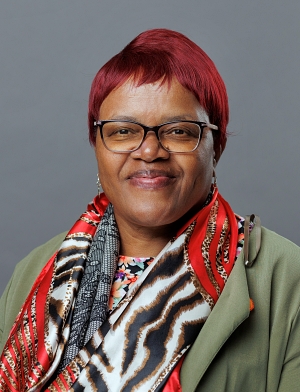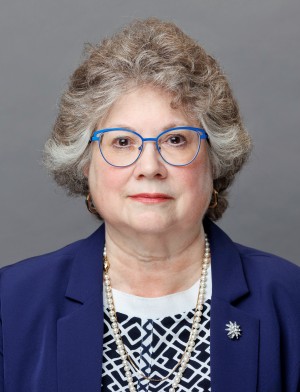Celebrating 2017 President's SSHRC Grant Awardees
The President's SSHRC Research Fund is financed from an annual grant made to the University of Saskatchewan President by the Social Sciences and Humanities Research Council (SSHRC), in general support of research and scholarly work in the social sciences, humanities and fine arts. The College of Nursing would like to congratulate Drs. Sithokozile Maposa, Wanda Martin and Louise Racine on their success in the 2017 Presidents SSHRC grant competition for the following projects.
Factors Influencing Violence Among Women in Northern Saskatchewan

In many societies, young to middle-aged women who are experiencing violence die young because there is not enough attention given to the women to stop the violence from happening. In Canada, there are a number of factors influencing violence among young women including, but not limited to, gender inequality, social or economic imbalances and race. High rates of violence have been reported among women under the age of 25 and specifically in the prairie provinces, an alarming percentage of young Indigenous women reported experiencing violence.
Dr. Sithokozile Maposa is the Principal Investigator on a project looking at the factors influencing interpersonal violence among women in Northern Saskatchewan. “Violence occurs in all parts of the world, but our team decided to focus on Northern Saskatchewan as we want to change what is happening in our backyard so to speak. We are hoping the factors that influence past and current experiences of interpersonal violence among women in Northern Saskatchewan may offer the broader view needed to improve our understanding of contextual factors associated with violence such as personal, interpersonal, community and societal costs.”
Working alongside Dr. Maposa on this project is College of Nursing’s Dr. Louise Racine and Shirley Woods from the Prince Albert Grand Council. “In order to achieve meaningful change, and break the cycle, we must all work together,” said Maposa. Dr. Maposa and her team hope the investigation of the violence risk factors will add important new information needed to inform multidisciplinary interventions for at-risk populations. “We need to explore not only the factors influencing the violence, but we need to look at whether or not the social services that are offered to women in Northern Saskatchewan are meeting the required needs.”
Ruffled Feathers: A Case Study on Urban Hens in Saskatoon

Cities in North America are encouraging urban agriculture, in particular, urban hen keeping. However, many people struggle with the concept of their neighbours raising hens in their backyards. College of Nursing’s Dr. Wanda Martin has teamed up with Dr. Rachel Engler-Stringer from the College of Medicine and Gordon Enns with the Saskatoon Food Council to understand why people support raising urban hens against current bylaws and continue to argue for changes, to explore the concerns of people who are adamantly opposed to urban hens and ultimately, to identify what barriers exist in bylaw and zoning changes to allow for the practice to move forward.
To gather data for their project, Dr. Martin and her team have been busy interviewing people who currently raise urban hens in their backyards and people who are against the practice. In April 2017, they submitted an urban hen proposal to Saskatoon City Council, but were unsuccessful with moving their pilot project forward. “A recent telephone survey that we conducted in the City of Saskatoon showed 56.7% of people living in the city agree with a pilot project to keep 3-5 chickens in city backyards and 41.3% disagree,” said Martin. “This P-SSHRC funded case study will help our team to better understand the passion and motivation behind these recent numbers and although we’ve experienced some resistance to date, we will use this case study to continue moving our pilot project forward.”
Looking at Cultural Competency and Cultural Safety in Study Abroad Programs

Principal Investigator Dr. Louise Racine, alongside Co-Investigators Drs. Susan Fowler-Kerry (College of Nursing) and Linda Wason-Ellam (College of Education) have come together for a project titled, A Postcolonial Analysis of Cultural Competency and Cultural Safety in Study Abroad Programs among Undergraduate Students in International Placements. The overall purpose of this project is to assess how well undergraduate students participating in international placements are prepared to provide safe, culturally competent nursing care.
Canada is a multi-cultural country, welcoming immigrants from many countries. Our population has become increasingly diverse in colour, culture, religion and ethnicity. As such, it is extremely important those who are providing care embrace inclusivity and diversity; however, evidence suggests that racial and ethnic intolerance continue to be an issue. Dr. Racine’s team will explore the cultural experience, cultural safety skills and attitudes among undergraduate students participating in international placements, look at whether or not international placements are an effective way to develop cultural competence and finally, they hope to come to an understanding of the best way to develop a student’s sense of global citizenship.
“Cultural safety is a concept that was created from the pioneer work of a Maori nurse who described the constant inequities affecting Indigenous peoples in New Zealand,” said Racine. “The management of cultural diversity in organizations and educational settings is a research priority that needs to be addressed in Canada. Both educators and researchers agree cultural competency and safety must be taught at the undergraduate level, if we are to educate a culturally competent workforce of the future. There is a lack of evidence about the potential neocolonial effects of education abroad and the effectiveness of international experiences as a means to become culturally competent and safe. We hope this pilot study will address this gap in knowledge and the data we collect will serve to develop an intervention study in the future.”
The President’s SSHRC research fund supports preliminary research projects. The support is expected to aide in building research capacity and the development of a competitive application in SSHRC related fields in the future. Congratulations once again Drs. Maposa, Martin and Racine – we look forward to seeing how you develop these projects going forward.

